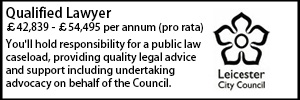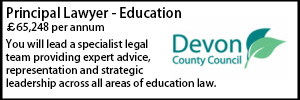President issues guidance on public law cases with international element
- Details
The President of the Family Division, Sir Andrew McFarlane, has issued updated guidance on obtaining information from other jurisdictions for public law children cases which have an international element.
In the guidance, published yesterday (21 January), he notes: “While it may not always be possible to obtain the information sufficiently quickly to enable the court to hear these cases within 26 weeks, I am very grateful to the central authority teams - the International Child Abduction and Contact Unit (ICACU) for England and the Welsh Government for Wales - for providing the following details, which will help practitioners to follow the correct route to obtain information to help the court when necessary.”
According to the updated guidance, the central authorities (ICACU for England and the Welsh Government for Wales) may be able to help by making a request for co-operation to another country, for the collection and exchange of information if:
- the other country is a State Party to the 1996 Hague Convention; and
- the proceedings are within the scope of the 1966 Hague Convention; and
- the request for co-operation is provided for in Chapter V (Co-operation) of the 1996 Hague Convention.
It adds however: “If you are considering making a request under the 1996 Hague Convention you must first consider Article 37 of the 1996 Hague Convention before deciding to contact the central authority. This is because Article 37 says an authority shall not request or transmit any information under Chapter V if to do so would, in its opinion, be likely to place the child's person or property in danger or constitute a serious threat to the liberty or life of a member of the child's family.
“The central authorities may have practical knowledge and experience of the processes and procedures in the other country which they can usefully share in response to an enquiry. However, you should not rely on information formerly provided by either central authority in a different case, as the other country’s processes and procedures may have changed since you last contacted the central authority.”
The guidance notes that requests for co-operation involving the collection and exchange of information under the 1996 Hague Convention “must be distinguished from requests for evidence”.
It adds: “States have differing views about what is in scope of the 1996 Hague Convention (information) and what is evidence. If you are in doubt this may be where the central authorities’ practical knowledge and experience of the other country’s processes and procedures can be of assistance. In such cases you should make an early enquiry to avoid delay at the point the formal request needs to be made.”
Outlining what the Central Authorities do not do, the guidance states:
“The central authorities for the 1996 Hague Convention have no role to play in the operation of the 1965 Hague Service Convention nor in the operation of the 1970 Hague Evidence Convention.”
They will not:
- serve or arrange service of court documents and nor will their counterpart in the other country;
- assist in acquiring evidence;
- forward requests for co-operation on to other domestic central authorities or bodies if they receive a request which is outside the scope of the 1996 Hague Convention;
- notify consular authorities about proceedings concerning a child who is a foreign national as that is not a central authority duty or function.
Further, in proceedings:
- central authorities do not become directly involved;
- they are under no obligation to engage;
- they do not require a court order to discharge their duties and responsibilities under the 1996 Hague Convention;
- they should not be directed to attend a court hearing.
Outlining advice on making a request for co-operation, the Family President emphasises that requests must be “relevant”, “focussed”, “timely” and “practical” – and in scope of the 1996 Hague Convention.
The guidance acknowledges that the 1996 Hague Convention does not require a requested State to respond to a request for co-operation within a “specific timescale”, noting: “This means the requesting central authority cannot compel the requested central authority or foreign competent authorities to respond by a specified date. Their counterparts are, however, more likely to be able to help if the request is focussed and made on a timely basis.”
To assist the central authority and their competent authorities when formulating a request, the guidance advises:
- You should avoid acronyms and, so far as is possible, technical language. If technical language is used, an explanation should be provided.
- For “connected persons assessments” it may be useful to explain what the local authority or court would find helpful for the assessment to cover but it is unlikely to be appropriate to ask foreign authorities to complete domestic forms.
- If the request is to identify or assess potential alternative carers, provide as much information as possible to assist the requested State to trace the individuals concerned; if current contact details are not known, then the last known address in the requested country (or as much information as possible as to where the family is from in that country); social security details or passport / foreign identity document details may also assist.
- If you have already had contact with the connected person, explain what contact has taken place, by what form of communication and provide the contact details you used.
- If the court’s permission is required to disclose information or documents to the English / Welsh central authority and to the requested central authority the permission application should be made promptly.
The guidance also offers information about the possible placement of a child in another 1996 Hague Convention country, and contacting the central authorities.
The Family President has also this week (25 January) issued updated guidance on transfer of proceedings under Articles 8 and/or 9 of the 1996 Hague Convention.
Lottie Winson














































